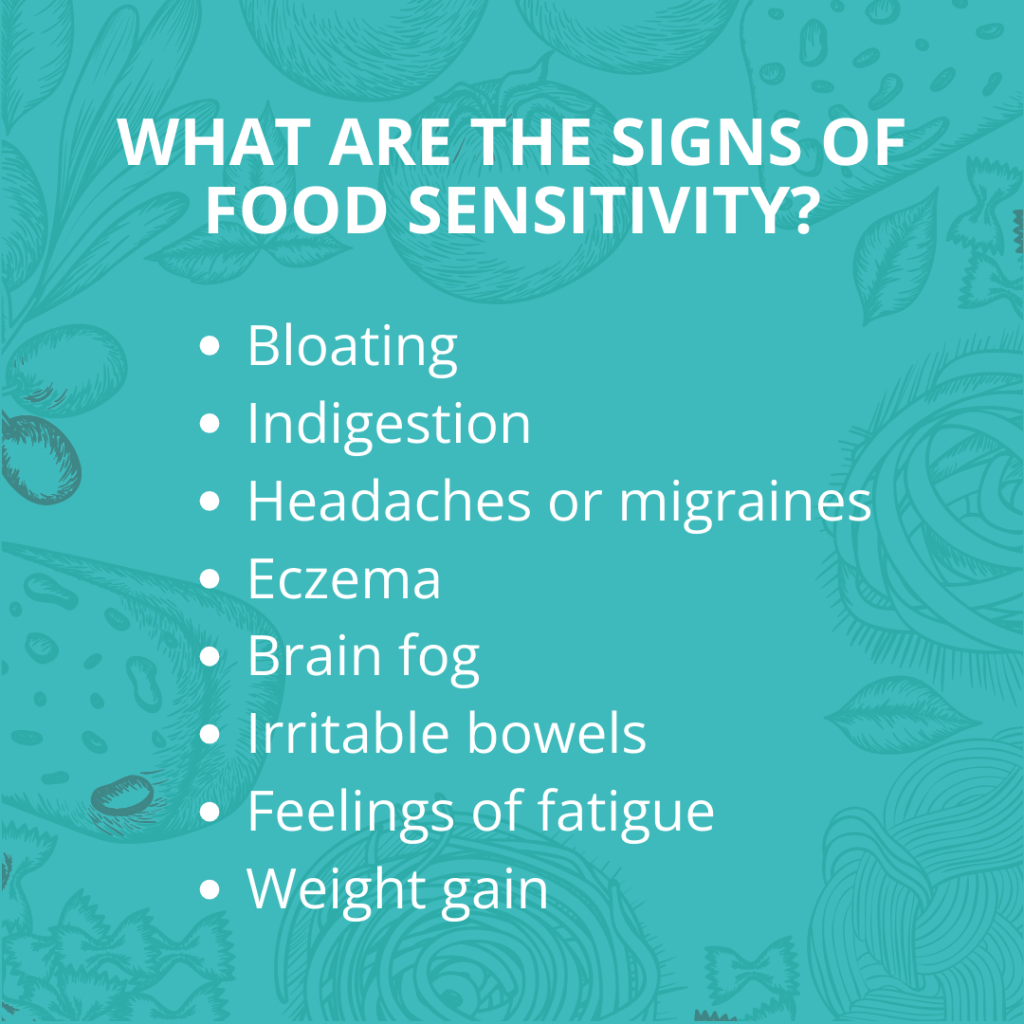Food sensitivities can develop over time as one gets more sensitive to a specific food. If you’re careful enough, you can see the patterns of food sensitivity after eating trigger foods. Often, it takes a while to notice sensitivity symptoms because they take hours to show up. It can take up to 72 hours for food sensitivity symptoms to appear.
However, food allergies are easy to identify because you get symptoms immediately after eating the trigger food or a few hours later. Food sensitivity is a reaction in the digestive system. Your body’s inability to digest specific foods is what causes food sensitivity. The body sometimes cannot digest these foods due to the lack of enzymes to break down that particular food.
When the body experiences difficulty digesting food, it causes not only digestive symptoms but also inflammation in the body.
Why is food sensitivity testing important?
Food sensitivity testing will help you gain insights into what foods affect your body to manage your diet. When you take a Sensitivity Test, it shows you which foods your body is sensitive to. With such insights, you can easily manage your diet to get all the important nutrients and remove all the foods causing you symptoms from your diet.
Sensitivity tests work on the memory of your body’s immune system, which is the maker of your food intolerances and allergies. The benefit of food intolerance testing is that you will evade chronic inflammation caused by the adverse effects of food intolerance.
However, you can only evade chronic inflammation if you take your sensitivity test seriously and, with the help of a dietician, remove all the trigger foods from your diet, replacing them with other nutritious options.
When you get digestive issues every couple of days because of your diet, you must get to the bottom of the issues and deal with them. That’s what food sensitivity tests are useful for. Food sensitivities are far more common than food allergies and affect most of the unaware population, and they often live with these symptoms that can make the quality of one’s life decline.
How does food sensitivity affect the body?
Food sensitivity or food intolerance is a result of the body’s inability to break down specific foods. So, when you have a food intolerance, that trigger food isn’t broken down in the small intestines like it’s supposed to. However, it’s pushed down into the colon, where gut bacteria ferments it, releasing gas and causing water retention.
When undigested food is pushed into the colon, the colon has to produce much water to help move it through. This entire process of fermentation and water retention causes intolerance symptoms like gas, bloating, and stomach cramps, among other symptoms.
The issue with food sensitivity is that it takes many hours, up to three days, for the symptoms to appear. So, this makes it hard to nail down the culprit and avoid it in the future. That’s why we recommend a Sensitivity Test to save you the hustle. When you eliminate the trigger foods from your diet, your digestive system returns to normal functioning, and you’ll no longer experience symptoms.
There’s a common condition known as leaky gut syndrome. This condition indicates intestinal permeability. People suffering from leaky gut syndrome often develop food sensitivities. When you have this issue, it’s best with the help of your doctor to deal with leaky gut syndrome before moving on to food sensitivities.
Most people with leaky gut also suffer from multiple food sensitivities. We recommend you consult your doctor before taking an Intolerance Test. They’ll take various tests to check for this condition or other underlying conditions that could be causing food intolerance. When a patient with a leaky gut heals their intestinal wall, they can deal with food sensitivities. A healed gut means you’re less sensitive to most foods.
What are the signs of food sensitivity?
It’s important to identify food sensitivity symptoms to know whether you need a test. Aside from inflammation, common sensitivity symptoms include:
- Bloating
- Indigestion
- Headaches or migraines
- Eczema
- Brain fog
- Irritable bowels
- Feelings of fatigue
- Weight gain

How does food sensitivity testing in New Zealand work?
IgG antibodies are plenty in the blood stem. They attach themselves to the food antigen creating a complex that the body can quickly flush out with the help of macrophage cells. When you consume moderate to large amounts of antigens, inflammation occurs, releasing chemicals like the antibody-antigen complex, which infiltrates your body’s tissues.
A sensitivity test checks for the amount of IgG antibodies released when a specific food is introduced into the body. This helps you know your food sensitivities. Since IgG is often delayed, a blood test often brings about quick results. Based on the test results, you can adjust your diet and go on an elimination diet, after which you can slowly reintroduce the trigger foods into your system.
How does hair allergy testing in New Zealand work?
A hair test is used for food sensitivities. This testing method is known as bio-resonance testing, which helps identify food sensitivities and intolerances. The method is non-invasive and quite cheap. You must send your hair sample to the labs and get your sensitivity results within a few days.
Hair testing is a simple and fast method of testing. There is also a growing field of research that shows how it works and how useful it can be. After your results, you can get on an elimination diet and see how your body feels before reintroducing trigger foods.
Final thoughts
Food sensitivity testing is important as it helps you know and eliminate trigger foods from your diet. If you suffer from digestive issues often, it’s time you took a Sensitivity Test. You can then determine which foods are causing your symptoms and eliminate them. Many people aren’t aware of their food sensitivities and end up living with the symptoms. But now that you’re aware of these symptoms, you can take charge of your diet.


